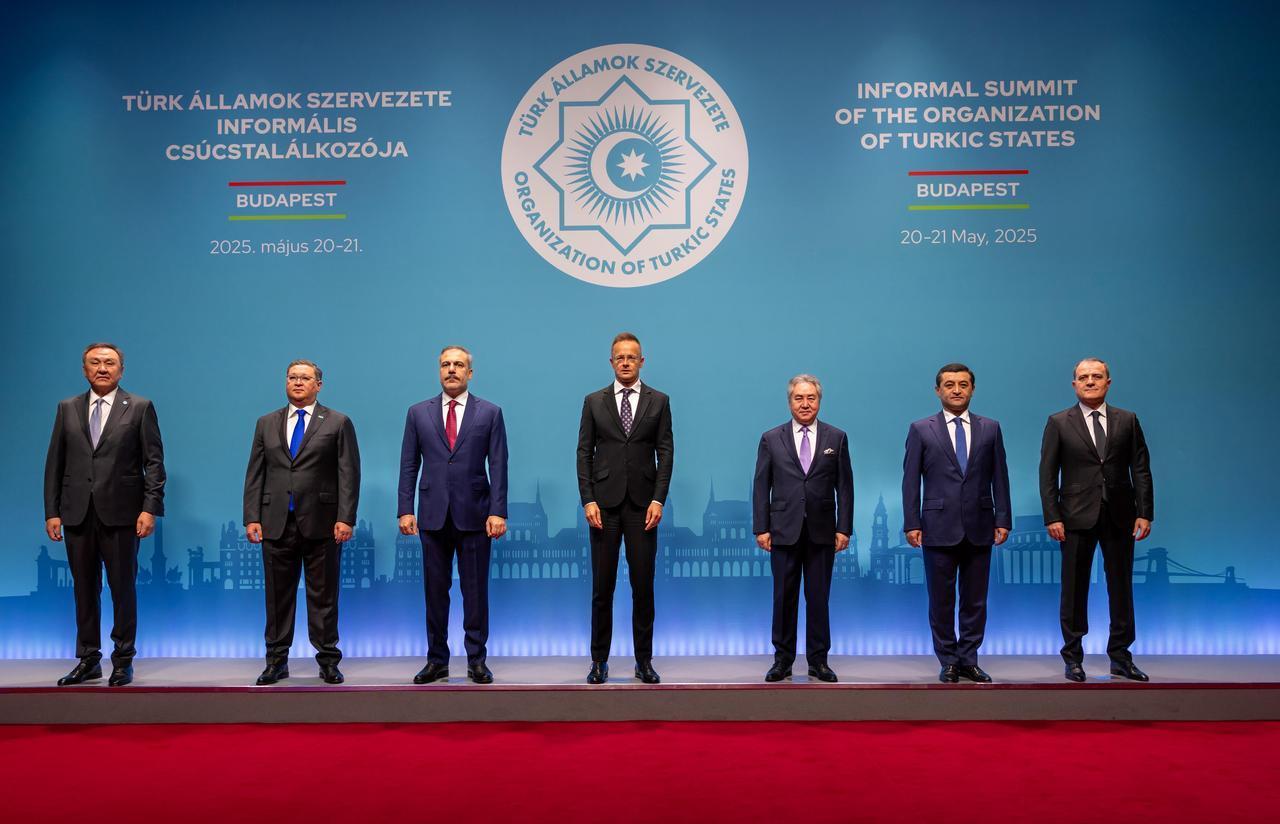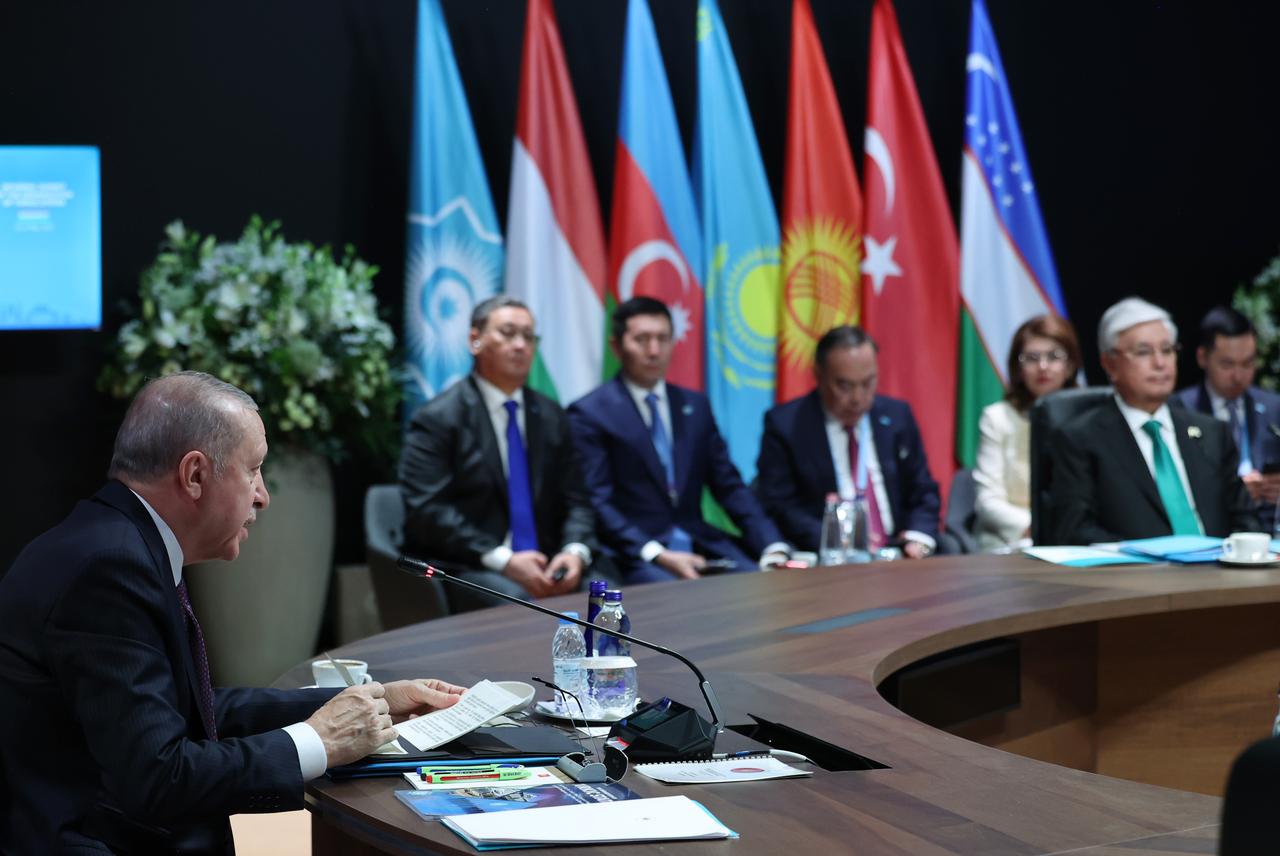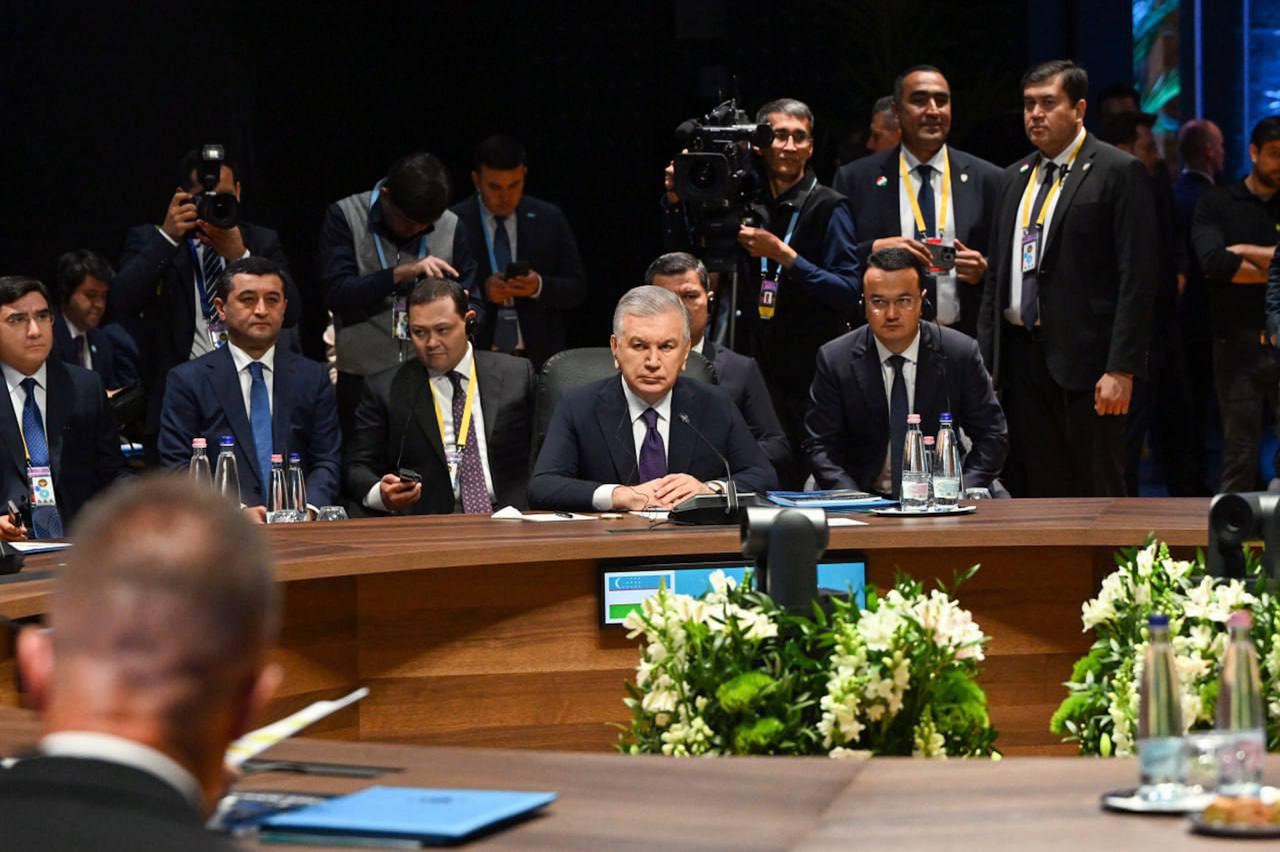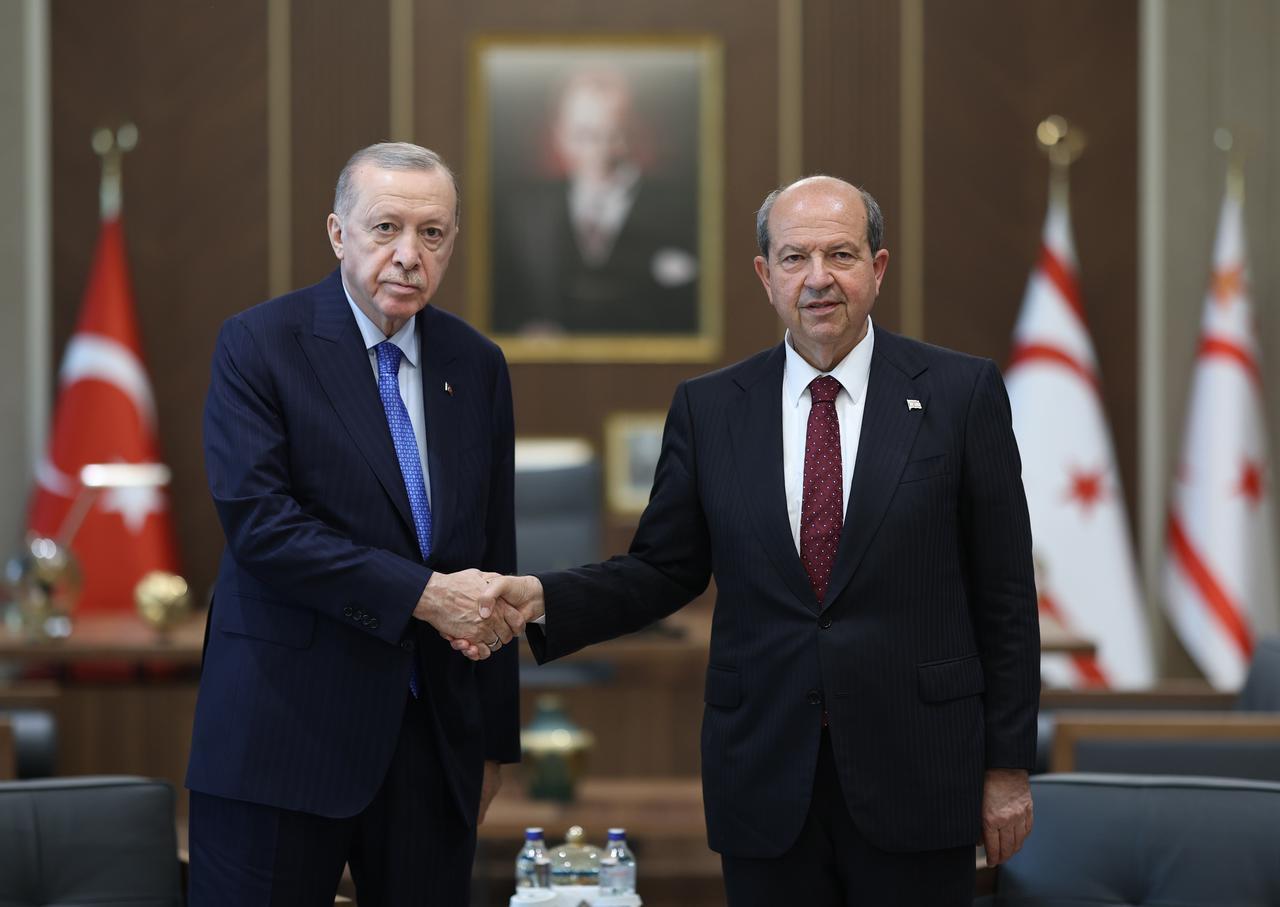
At the informal summit of the Organization of Turkic States (OTS) held May 21 in Budapest, the conspicuous absence of Turkish Republic of Northern Cyprus (TRNC) leadership highlighted the bloc’s delicate diplomatic balancing act. Although TRNC President Ersin Tatar was not invited, the summit’s final declaration made specific reference to the TRNC—an apparent effort to acknowledge its growing role in the Turkic world while avoiding direct confrontation with the European Union.
The summit, hosted by Hungary, an EU member and OTS observer, brought together leaders from Türkiye, Kazakhstan, Uzbekistan, Azerbaijan and Kyrgyzstan. Yet the omission of Turkish Cyprus, despite its observer status in the OTS since 2022, reflected broader geopolitical hesitations, particularly Budapest’s effort to avoid tensions with Brussels, Nicosia and Athens.
While no formal explanation was offered by the host, multiple diplomatic sources told local media that Hungarian officials opted to exclude the TRNC to avoid political fallout from the European Union, as well as backlash from the Greek Cyprus and Greece.
Nonetheless, Northern Cyprus maintained a presence on the sidelines of the Turkic bloc’s broader activities. Among those who traveled to Baku for the second Meeting of OTS Ministers of Interior on Friday, May 23, was TRNC Interior Minister Dursun Oguz.
Despite Tatar’s absence, Turkish President Recep Tayyip Erdogan made a direct appeal during the summit, emphasizing the TRNC’s importance to the Turkic world. In a pointed remark that highlighted Ankara’s growing frustration, Erdogan said:
“A family photo of the Turkic world without the Turkish Republic of Northern Cyprus will always remain incomplete.”
Erdogan reaffirmed Türkiye’s desire for the TRNC to eventually become a full member of the bloc, which includes mostly Central Asian and Turkic-speaking states. Turkish Cyprus has held observer status in the organization since 2022, a move strongly backed by Ankara but opposed by several EU capitals.

The joint declaration released after the summit included a subtle yet politically significant reference to Turkish Cyprus. The TRNC was described as an “inseparable part of the Turkic world,” and the document praised its contributions to the organization as an observer.
The communique also called for resolving the Cyprus issue based on the “existing realities on the island” and affirmed the rights of Turkish Cypriots as “equal co-owners” of the island.
Kazakhstan, Uzbekistan and Turkmenistan have all recently established diplomatic relations with Greek Cyprus—moves that have sparked backlash in the Turkish public.
The timing was not coincidental. The developments followed a major EU-Central Asia summit in Samarkand in early April, during which Brussels announced a €12 billion investment package for the region. According to regional analysts, one of the unstated prerequisites for the aid was the normalization of ties with Greek Cyprus, an EU member.
Kazakhs, Uzbeks and Turkmens soon followed with ambassadorial appointments to Nicosia. The diplomatic outreach drew sharp criticism in Turkish media, with some commentators accusing the Central Asian nations of betraying Turkic solidarity in exchange for European funding.

Speaking after the summit, President Ersin Tatar expressed mixed feelings about the outcome in Budapest. He welcomed the language used in the summit declaration but acknowledged that the failure to include a TRNC delegation “casts a shadow” over the statements.
Tatar had previously participated in OTS summits in Shusha and Bishkek with full recognition of his observer status. His exclusion from the Budapest meeting is seen not as an oversight but as a deliberate political decision.
Still, observers expect a return to the status quo at the next informal summit, scheduled to be hosted by Azerbaijan later in 2025. Given Baku’s close ties with Ankara and past openness to TRNC participation, a renewed invitation to Tatar appears likely.

The episode underscores the complex terrain the Organization of Turkic States must navigate as it expands its political footprint. While Ankara views the organization as a platform to elevate the international profile of the TRNC—diplomatically recognized only by Türkiye—other members remain cautious about provoking Brussels.
For now, the TRNC remains in diplomatic limbo: visible enough to be mentioned, but not enough to appear in the family photo in Budapest.